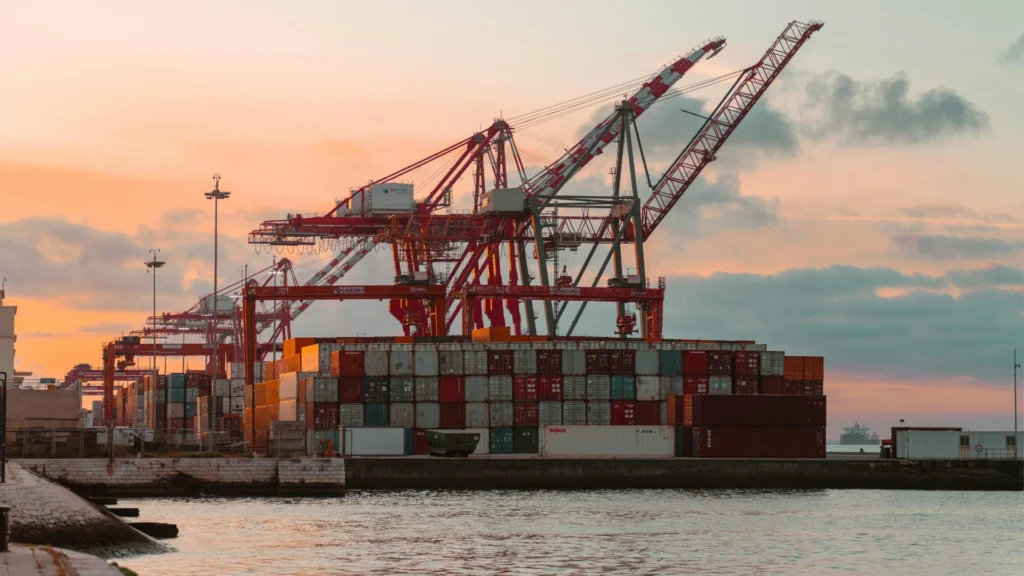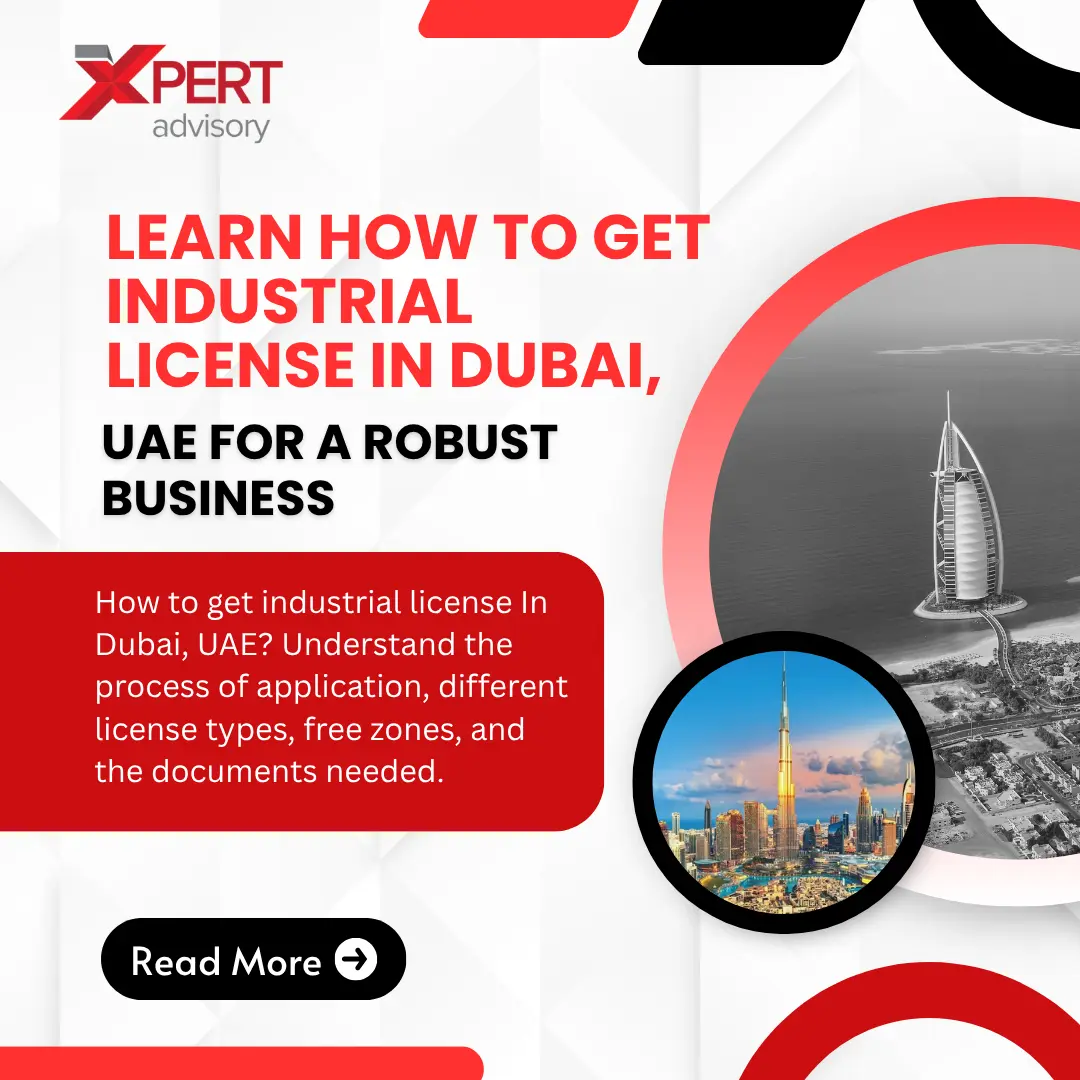An industrial license in Dubai, UAE, legally authorizes you to establish factories, warehouses, workshops, etc. Businesses engaged in manufacturing, processing, and other industrial operations in Dubai must have an industrial license. The type of business activities you deal in determines the type of license you need.
Finding it a bit tough to understand? Well, here’s a comprehensive guide on how to get industrial license in Dubai and the important details involved.
Let’s get started–
What Is An Industrial License In Dubai?

In Dubai, a company holding an industrial trade license is permitted to produce, manufacture, or process goods in an industrial setting. Businesses that plan to use mechanical or manual methods to transform raw materials into completed or semi-finished goods must have this licence. The production of textiles, the processing of petroleum products, metal casting, food production, equipment manufacturing, and other activities might all fall under this licence.
With such an UAE industrial licence, the industrial activity is guaranteed to adhere to Dubai’s zoning, health, safety, environmental, and economic standards. Depending on the type of industrial operation and business activities permitted, the Dubai Department of Economic Development (DED) issues the industrial license in UAE, which requires permission from many government agencies.
Why Should You Obtain an Industrial License in Dubai?

Industrial companies can lawfully manufacture items and run factories, warehouses, and workshops inside authorised industrial zones by obtaining an industrial licence. This license helps you gain the trust of partners, customers, and government agencies in addition to legitimising your company’s operations.
It offers a framework for adhering to Dubai’s stricter environmental and safety regulations, which are meant to promote sustainable industrial growth.
Important Steps On How to Get Industrial License in Dubai, UAE
Step 1: Select The Industrial Location And License Type
Depending on the nature of your manufacturing business, choose the precise kind of industrial licence you require. Light and medium industrial licenses are typically issued by Dubai.
Light Industrial License: Ideal for smaller-scale activities like light assembly or spare part storage.
Medium Industrial License: For more demanding manufacturing tasks like assembling cars or producing large gears.
Next, decide on an authorised industrial zone (Dubai mainland or free zones) that complements your line of work. Only specific industrial parks or zones, such as the following, are permitted to house industrial facilities:
- JAFZ, or Jebel Ali Free Zone
- Dubai Industrial City
- Investment Park in Dubai
- South Dubai
Regulations pertaining to acceptable infrastructure and operations vary by zone, and some may bar companies that handle flammable materials.
Step 2: Acquire No Objection Certificates (Nocs) And Preliminary Approvals
For an industrial business setup, obtain the required pre-approvals prior to submitting a formal application, including:
- The Department of Economic Development in Dubai has issued a No Objection Certificate (NOC).
- The Dubai Land Department must approve your land use in order to verify that your property is intended for industrial usage.
- Dubai Municipality’s environmental clearance, particularly for environmentally harmful undertakings.
- These documents guarantee that your proposed operations, location, and business plan adhere to the environmental and regulatory requirements established by the appropriate authorities.
Step 3: Send DED Your Application For An Industrial Licence.
Once you have received approvals, get ready to submit your business plan and application for an industrial licence to the Department of Economic Development. Important documents that are usually needed to get an industrial license include:
- Copies of shareholders’ passports
- Memorandum of Association (MoA) outlining the organisation and scope of the business
- Detailed technical and architectural plans for your warehouse or factory
- Your industrial project’s feasibility study and business plan
- Evidence of financial resources, like guarantees or bank statements
- Your industrial property’s lease or title deed (registered with Ejari)
- Raw materials, a list of equipment, and an explanation of manufacturing technologies
- Plans for waste management and environmental compliance
- Before giving its initial approval, the DED carefully examines items to make sure they comply with the rules.
Step 4: Build The Building And Secure Final Inspection Acceptance
To apply for an industrial license, start constructing your manufacturing unit in accordance with the authorised architectural plans and industry safety regulations as soon as you have received initial clearance. DED and other pertinent agencies conduct a final examination after setup and construction are finished. This guarantees:
- Adherence to authorised plans
- Installation of safety features such as ventilation systems, fire escapes, and extinguishers
- Manufacturing’s operational and environmental preparedness
- In order to obtain the final industrial operating licence, approval at this point is required.
Step 5: Obtain The Industrial Operating License
DED issues your industrial licence, which is normally good for five years, if you pass the final examination. Your industrial operations in Dubai are legally permitted under this licence. Keep in mind that in order to continue operating, the licence needs to be renewed every five years. Maintaining compliance with continuing regulatory obligations is essential to avoiding fines or company disruptions.
Special Approvals Required For Industrial License In Dubai
To ensure that your company satisfies all legal standards and finally setting up an industrial business, you must get permissions from multiple ministries and government departments to receive an industrial license in Dubai. Key industrial license requirements are as follows:
- Ministry of Economy (MoE) of the United Arab Emirates: Necessary for adherence to national industrial and economic laws.
- Dubai Municipality: Environmental restrictions, legal structure licenses, and land usage all require approval.
- Dubai Electricity and Water Authority: The installation of the required water and electrical infrastructure has been approved by the Dubai Electricity and Water Authority (DEWA).
- Dubai Health Ministry: Permission to guarantee health and safety requirements in pharmaceutical manufacturing, if pharmaceuticals are manufactured.
- UAE Ministry of Interior: Required for tasks involving hazardous material handling and public safety.
These permits contribute to the safe and lawful operation of your industrial enterprise in Dubai. Consulting with business consultants can be a great choice if you want a hassle-free business setup and easy license approval. With professionals by your side, it becomes easy to navigate the process of license issuance.
Additional Considerations
It’s important to understand a few more aspects when understanding how to get industrial license in Dubai. To obtain a license in the UAE, you must consider the following factors:
Minimum Capital Investment: Depending on the kind of industrial activity, a minimum capital investment of AED 250,000 is often needed.
Municipality and Other Approvals: Additional approvals from the Ministry of Health, Chamber of Commerce, Dubai Municipality, and other organisations unique to the industry may be needed.
Lease and Location: Lease agreements must be certified and documented, and physical space, a factory or warehouse, is required.
Compliance with Safety and the Environment: Dubai places a high priority on worker safety and environmental stewardship, both of which are essential during the industrial licence application process.
Bank Accounts and Visas: To handle your company’s finances after receiving your licence, you can register corporate bank accounts and apply for employee visas. You can seek the help of a business consultant to help you with the visas and bank accounts in the city.
Final Takeaway
When properly completed, the methodical yet intricate procedure of obtaining an industrial license in the UAE opens the door to stable and lawful industrial business operations. You can create a strong industrial business presence in Dubai’s booming economy by comprehending and adhering to the necessary procedures. This includes selecting the appropriate licence type and location, obtaining approvals, submitting thorough documentation, building compliant facilities, and passing final inspections. If you struggle to understand the legalities of the process, a business consultant can guide you through, from applying for a license to the final company formation!
Ready to Start Your Venture in Dubai?
Navigating the industrial license process doesn’t have to be overwhelming. Let Xpert Advisory guide you every step of the way– from proposals to approvals!
Book a consultation with us and kick-start your industrial business in Dubai, UAE.
FAQs
In Dubai, How Can One Renew Their Industrial Licence?
The Department of Economic Development (DED) in Dubai normally requires the renewal of industrial licenses every five years. In order to maintain regulatory compliance, the renewal procedure includes providing updated documentation, paying fees, and sometimes going through a facility inspection.
Can One Start An Industrial Business As Soon As They Get My Licence?
Yes, you can lawfully begin producing, processing, or storing commodities at your industrial facility as soon as DED issues your industrial operating license and all necessary inspections and approvals, including civil defense, are finished.
Does One Have To Locate My Industrial Facility In A Certain Area In Dubai?
Indeed, industrial operations are limited to specific industrial zones like Dubai Industrial City and Jebel Ali Free Zone, and Dubai South, where appropriate physical office and industrial units, and regulatory compliance for industrial operations are ensured.


